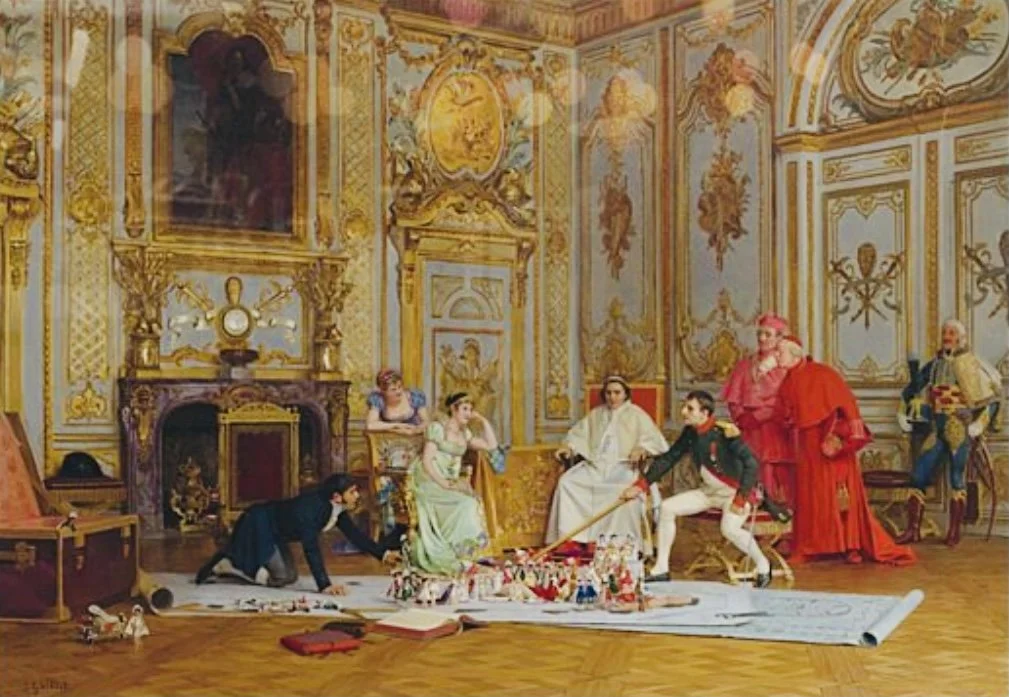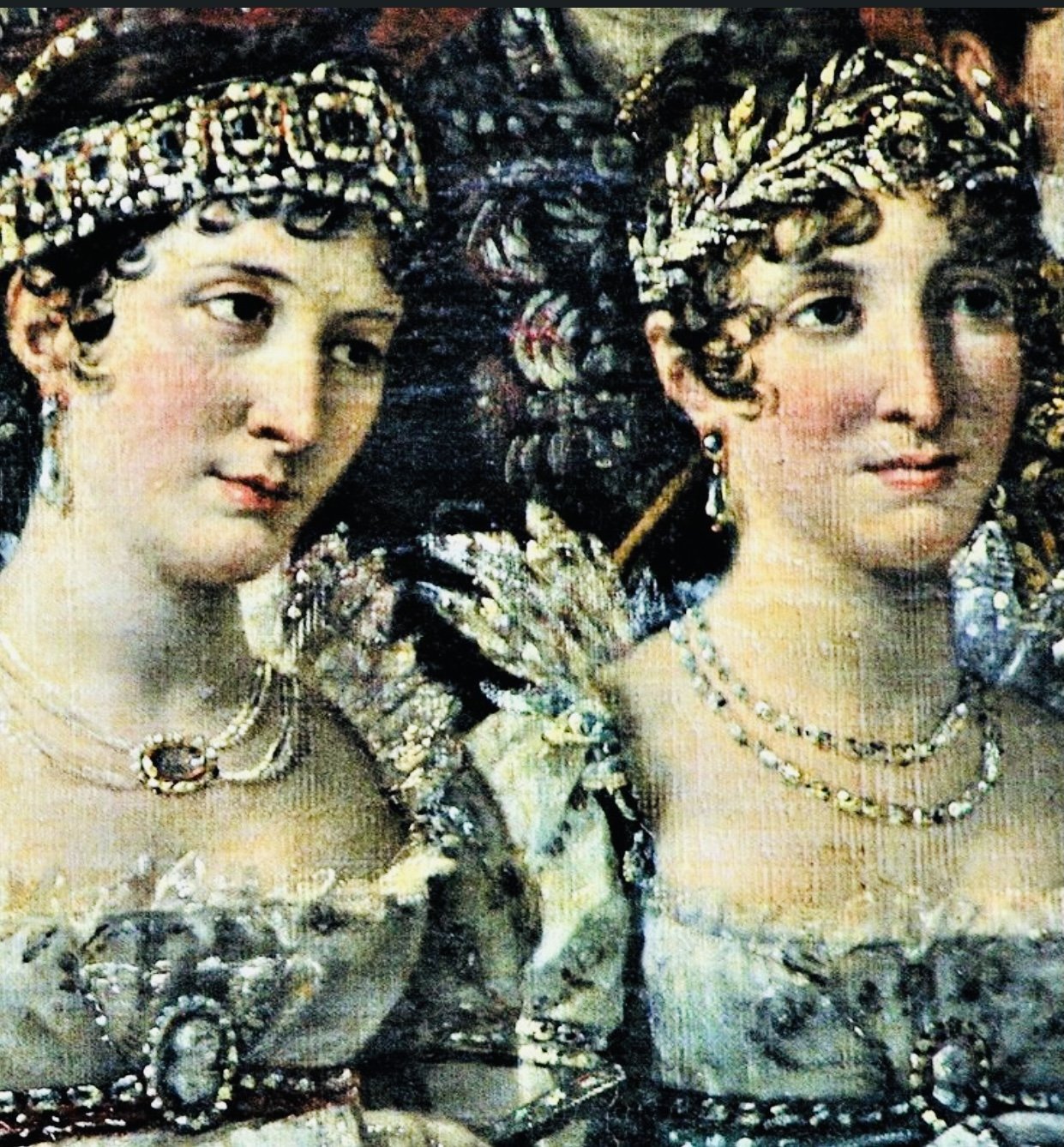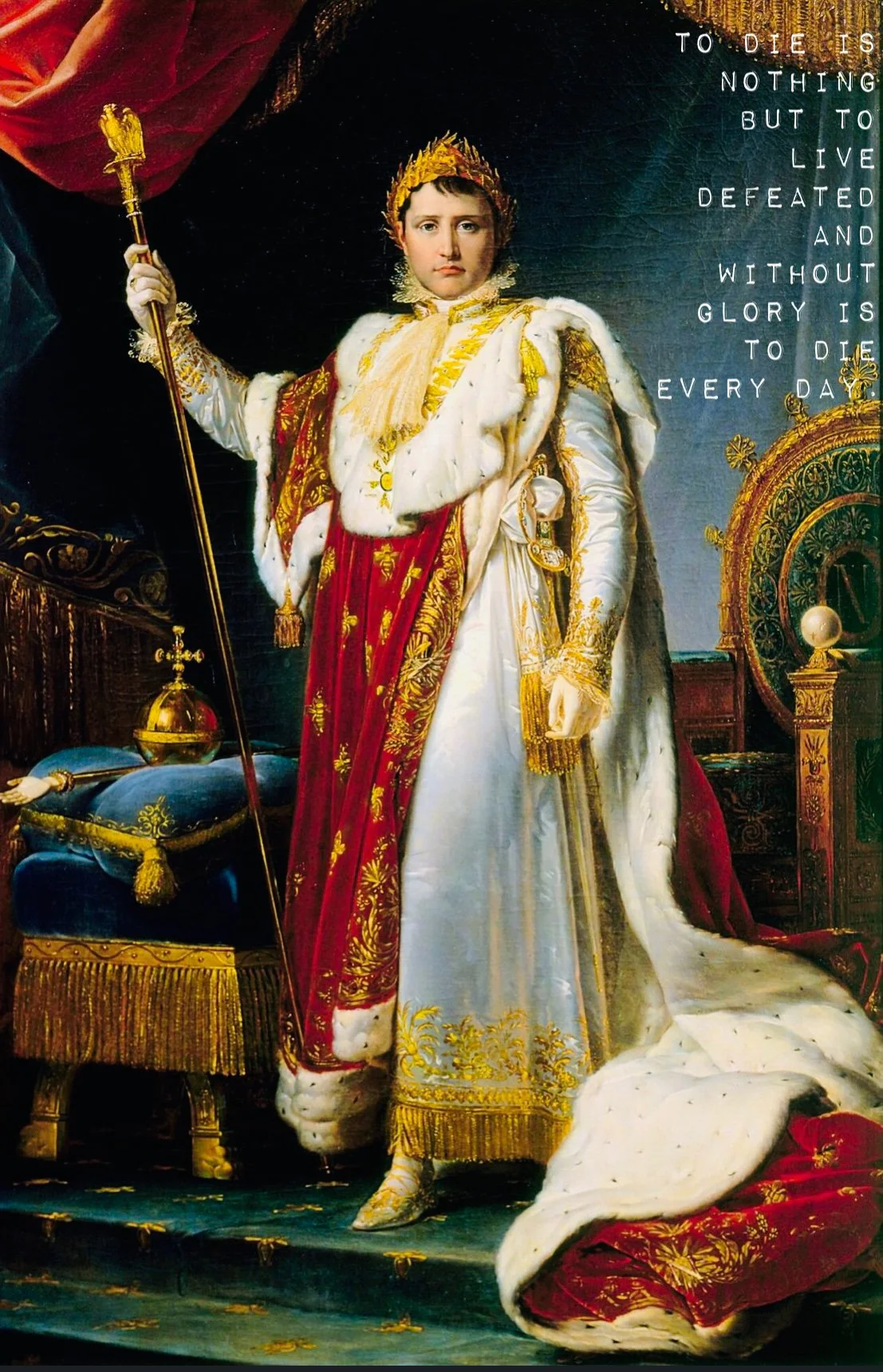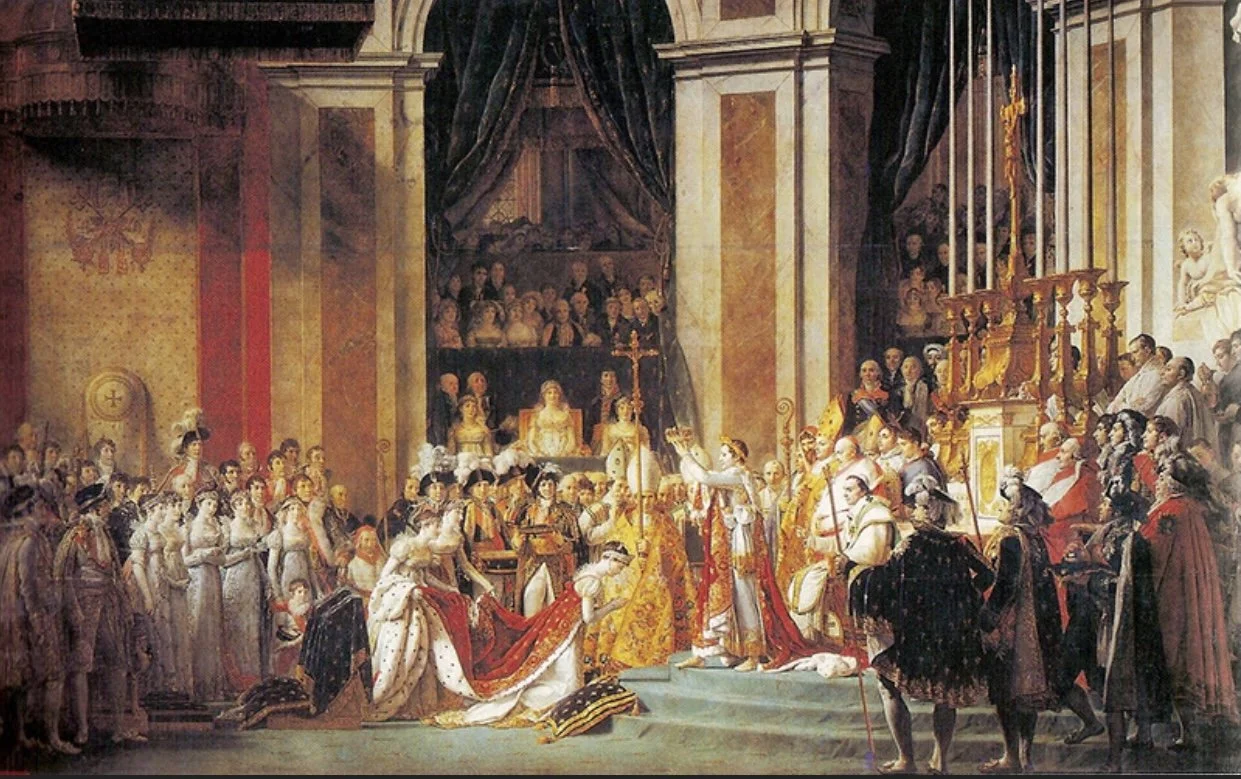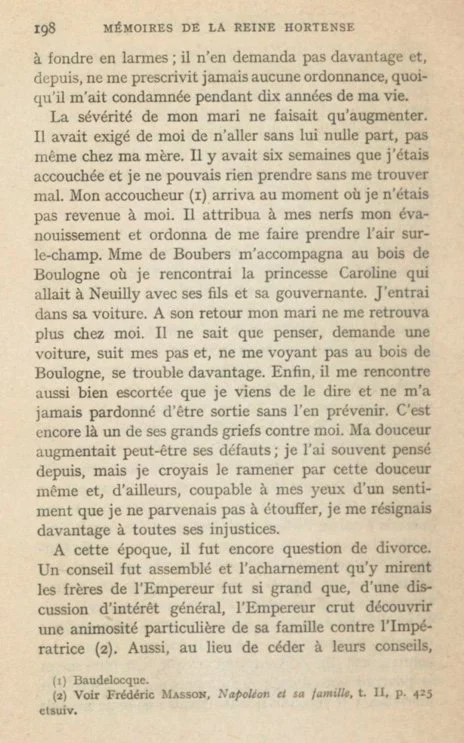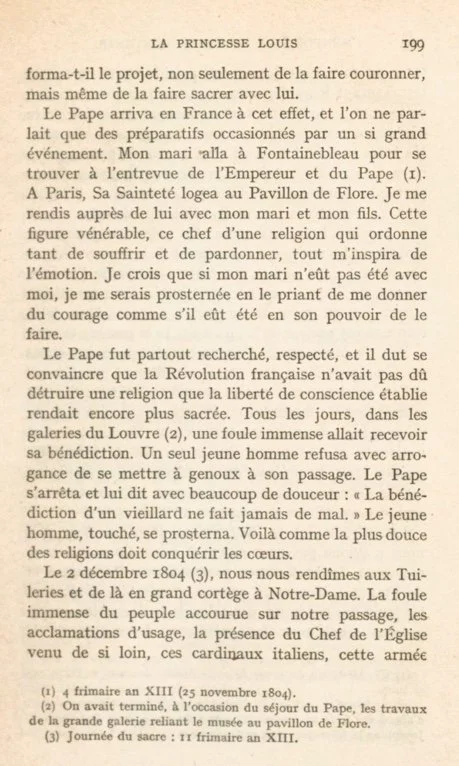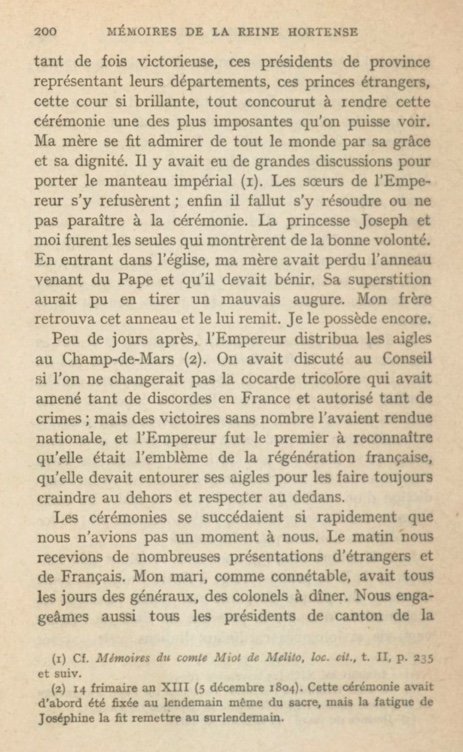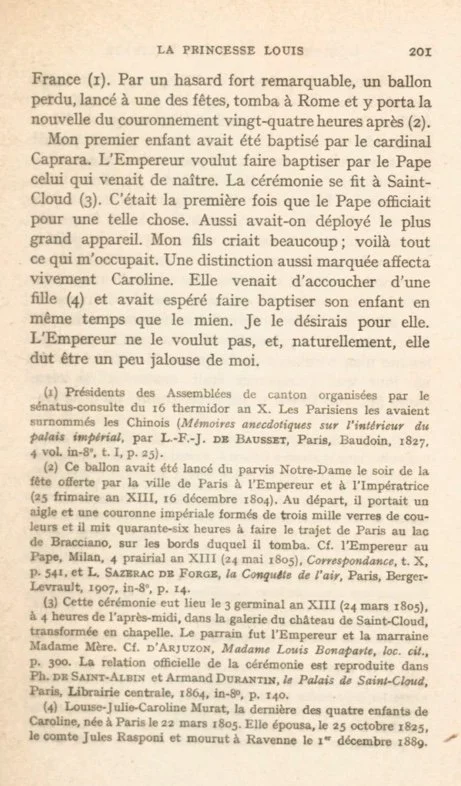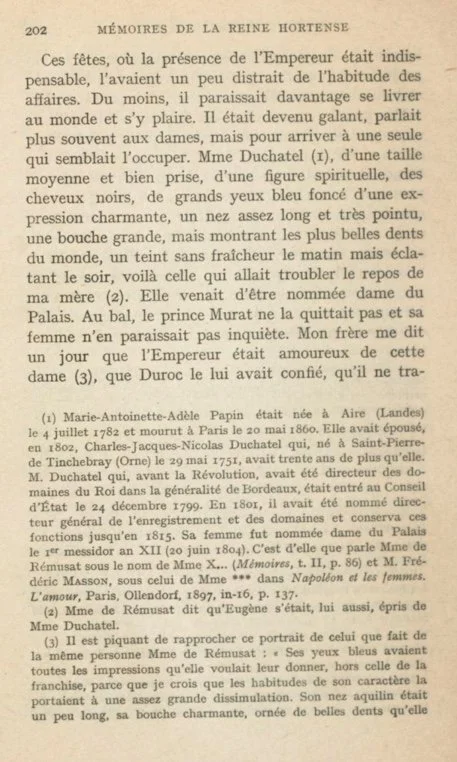Let’s have another look at Hortense’s Memoirs. If you want to read the book it is available for free at the side bar in English and French. Use the widget on the sidebar to translate the text below into pretty much any language.
In this excerpt, Hortense describes Napoleon’s Coronation from her point of view.
Hortense’s memoirs continues:
The question of a divorce between my mother and the Emperor came up again about this time. A family council was called. The Emperor's brothers displayed such relentless animosity on this occasion that Napoleon believed they were treating a matter of public interest as if it were a private feud.
As a result, instead of heeding their advice, he made plans not only to make my mother Empress, but to have her crowned at his own coronation. The Pope came to France to perform this ceremony and it became the outstanding event of the day. People talked about nothing else.
My husband went to Fontainebleau in order to be present at the interview between the Emperor and the Pope.
While in Paris, his Holiness was lodged in the Pavilion de Fiore [a corner of the Louvre near the Pont Royal]. I called on him, accompanied by my husband and my son. The sight of this venerable figure, head of the religion which teaches the beauties of suffering and forgiveness, moved me deeply. I believe had my husband not been with me I should have fallen on my knees, imploring his Holiness to give me courage, just as though such a thing were in his power.
The Pope was everywhere sought after and treated with the greatest respect. He could see that the French Revolution had not been able to destroy here a religion which the now established liberty of conscience rendered still more inviolable.
Every day in the galleries of the Louvre an immense throng of people assembled to receive his blessing. Only one young man arrogantly refused to kneel as his Holiness passed. The Pope stopped and said to him very gently, "An old man's blessing never does any harm."
Touched by his remark, the young man knelt in humble reverence. Thus, the gentlest religion can conquer human hearts.
Emilie de Beauharnais Lavallette and Hortense at the Coronation.
On December 2, 1804, we went in state to the Tuileries and from there in a great procession to Notre Dame. The huge crowd of people who had gathered to watch us pass, the customary cheering, the presence of the head of the Church, who had traveled so far to attend the ceremony, the Italian cardinals, the army which had won so many victories, the presidents representing their different provinces, the foreign princes, the brilliant court officials, all contributed to make the spectacle one of the most imposing that can be imagined.
My mother's grace and dignity won the admiration of all those present. There had been violent discussions as to who was to carry the Empress's train. The Emperor's sisters had refused to do so, but were forced to obey or else not appear at all at the ceremony.
The Princess Joseph and I were the only ones to play our parts willingly. As she entered the church, my mother mislaid the ring given her by the Pope which he was to bless.
His superstitious nature might have seen in this incident a sign of coming misfortune. My brother found the ring afterwards and gave it to me. It is still in my possession. A few days afterwards, the Emperor distributed his symbolic eagles to the troops on the Champ de Mars.
At a cabinet meeting the question had been discussed whether it would not be advisable to change the national colors, do away with the tricolor which had aroused so much discord throughout France and which had been identified with so many crimes. But innumerable victories had since then made it a national rather than a party emblem, and the Emperor was the first to admit that it had been the symbol of France's regeneration and consequently should accompany his eagles in order that they might be feared abroad and honored at home. The different ceremonies followed one another so rapidly that we did not have a moment to ourselves. In the morning a number of Frenchmen and foreigners were brought to us to be introduced.
To die is nothing but to live defeated and without Glory is to die every day.
My husband as Constable of France had daily as his guests a number of generals and colonels. We also invited all the presidents of the French cantons. By a strange chance, a balloon that had gone astray during one of the fêtes fell near Rome and brought to that city the news of the coronation twenty-four hours after it had taken place. My eldest child had been baptized by Cardinal Caprara. The Emperor wished to have the one who had just been born baptized by the Pope.
The ceremony took place at Saint Cloud. It was the first time the Pope had ever performed this rite. Consequently, the greatest pomp accompanied it. My son cried a great deal. That was the only thing I noticed.
Such a mark of the Emperor's favor vexed Caroline keenly. She had just given birth to a daughter and had hoped to have the child baptized at the same time as mine. I should have been glad to have this done on her account.
The Emperor would not hear of it, and naturally she was rather jealous of me. These festivities, which the Emperor was obliged to attend, had taken his mind a little off his work.
At least he seemed more willing to appear in society and to enjoy it. He had become courtly in his manners, and spoke more frequently to the ladies, but only in order that he might the more easily converse with one of them who appeared to interest him extremely.
The original French is available below:

